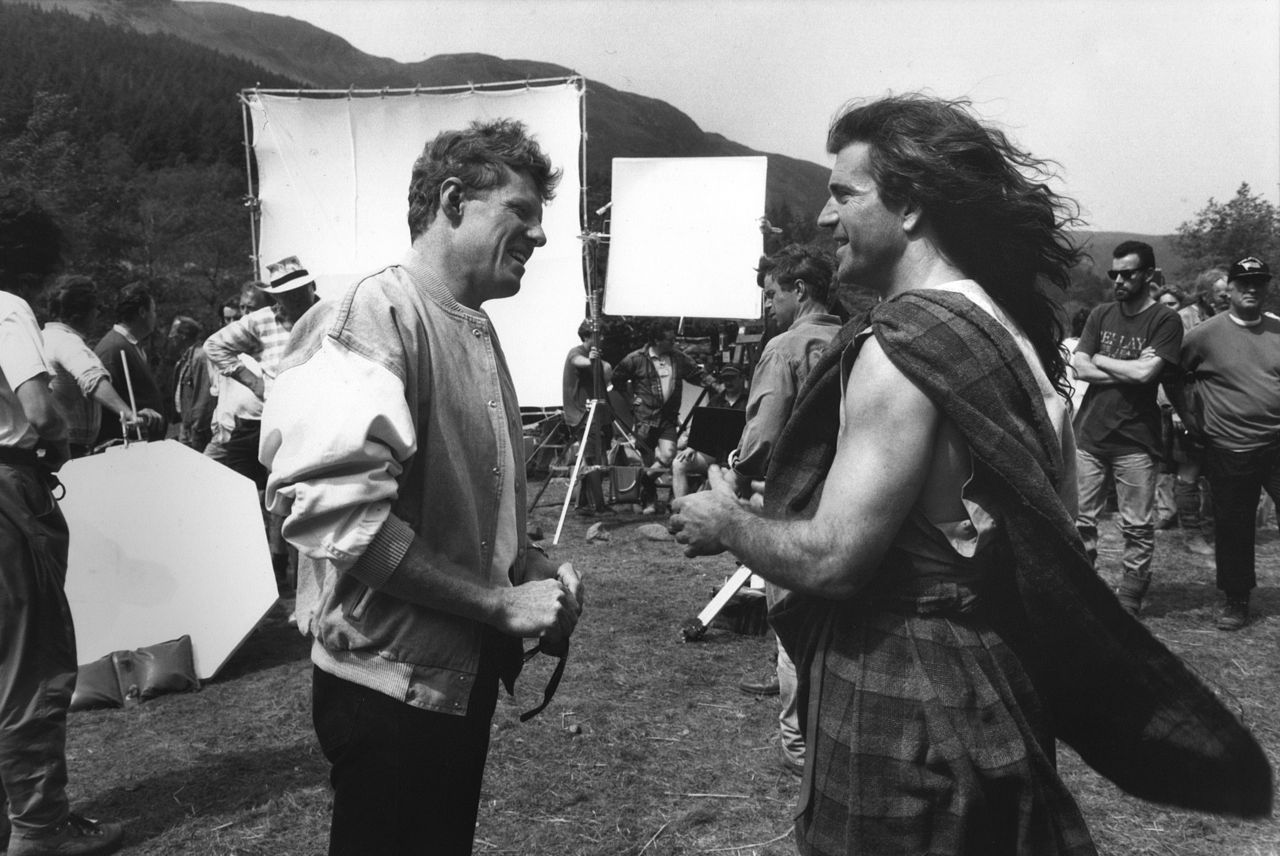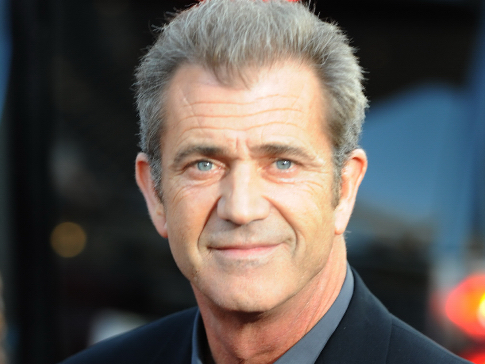Mel Gibson
Mel Gibson

Mel Columcille Gerard Gibson, born on January 3, 1956, is an esteemed American actor and film director recognized for his prowess in action-packed roles. His notable performances include the iconic Max Rockatansky in the initial three installments of the post-apocalyptic saga Mad Max and the portrayal of Martin Riggs in the beloved buddy cop franchise Lethal Weapon.
Originally hailing from Peekskill, New York, Gibson's journey took a pivotal turn when he relocated to Sydney, Australia, with his family at the age of 12. Immersing himself in the art of acting, he honed his craft at the National Institute of Dramatic Art, showcasing his talent alongside Judy Davis in a rendition of Romeo and Juliet. In the 1980s, he ventured into entrepreneurship, establishing Icon Entertainment, lauded by director Atom Egoyan as a refreshing departure from the conventional studio system. Director Peter Weir propelled Gibson into the limelight with a prominent role in the World War I drama Gallipoli (1981), earning him accolades including the Best Actor Award from the Australian Film Institute.
Gibson's directorial debut, Braveheart (1995), marked a triumphant moment in his career as he produced, directed, and starred in the historical epic. The film garnered widespread acclaim, fetching Gibson prestigious awards such as the Golden Globe for Best Director and the Academy Awards for Best Director and Best Picture. Subsequently, he helmed the biblical drama The Passion of the Christ, a project met with both financial success and controversy. His directorial prowess further shone in the action-adventure spectacle Apocalypto (2006), set against the backdrop of Mesoamerica in the early 16th century.
Despite facing legal troubles and publicized controversies, Gibson's talent endured, evidenced by his resurgence in Hollywood with notable performances in Edge of Darkness (2010) and The Beaver (2011), directed by Jodie Foster. His directorial comeback with Hacksaw Ridge (2016) was met with critical acclaim, earning him two Academy Awards and nominations in four other categories, including Best Picture and a second nod for Best Director.

Gibson was born in Peekskill, New York, into a large family of Irish descent, being the sixth of 11 children and the second son of Hutton Gibson, a writer, and Anne Patricia (née Reilly), who hailed from Ireland and passed away in 1990. His paternal grandmother, Eva Mylott, was an opera contralto born in Australia to Irish parents, while his paternal grandfather, John Hutton Gibson, amassed wealth as a tobacco businessman in the Southern United States. Gibson's younger brother, Donal, also pursued a career in acting. The name Mel is a tribute to St. Mel's Cathedral in his maternal hometown of Longford, and his second name, Colmcille, honors an Irish saint. Thanks to his mother, Gibson holds both Irish and American citizenships, in addition to being a permanent resident of Australia.
In 1968, Gibson's father received a substantial sum in a lawsuit against the New York Central Railroad and decided to relocate the family to West Pymble, Sydney, Australia, when Gibson was 12 years old. The move was driven by economic factors and his father's anticipation that Gibson would be exempt from the draft during the Vietnam War if they resided in Australia.
Throughout his adolescence, Gibson received his education from the Congregation of Christian Brothers at St Leo's Catholic College in Wahroonga, New South Wales.
Gibson's entry into the world of cinema garnered praise from film critics, who drew comparisons to iconic movie stars. Vincent Canby, in 1982, remarked that "Mr. Gibson recalls the young Steve McQueen... I can't define 'star quality,' but whatever it is, Mr. Gibson has it." Additionally, Gibson has been likened to "a combination Clark Gable and Humphrey Bogart." His performances in the Mad Max series, Peter Weir's Gallipoli (1981), and the Lethal Weapon franchise cemented his reputation as an "action hero."
Expanding his repertoire, Gibson took on diverse acting projects, including dramatic roles like in the Franco Zeffirelli adaptation of Hamlet (1990) and comedic parts in Maverick (1994) and What Women Want (2000). Venturing beyond acting, he delved into directing and producing with films such as The Man Without a Face (1993), Braveheart (1995), The Passion of the Christ (2004), and Apocalypto (2006). Jess Cagle of Time magazine likened Gibson's presence to that of Cary Grant, Sean Connery, and Robert Redford. Interestingly, Connery even suggested Gibson as a potential James Bond successor to Connery's own "M," but Gibson declined the offer, reportedly concerned about being typecast.
Gibson embarked on his acting journey at the National Institute of Dramatic Art in Sydney, alongside actress Judy Davis, where they portrayed the leads in Romeo and Juliet. Notably, Gibson took on the role of Queen Titania in an experimental rendition of A Midsummer Night's Dream. Following his graduation in 1977, Gibson swiftly transitioned to the filming of Mad Max while maintaining his presence in stage productions, notably joining the State Theatre Company of South Australia in Adelaide. His stage repertoire includes notable performances such as Estragon in Waiting for Godot opposite Geoffrey Rush and Biff Loman in Death of a Salesman in Sydney. Among his theatrical endeavors, Gibson's 1993 performance in Love Letters opposite Sissy Spacek stands out.
While still a student at NIDA, Gibson made his film debut in Summer City (1977) and gained prominence as the titular character in Mad Max (1979), earning $15,000 for his role. He further showcased his versatility in Tim (1979), portraying a mentally slow youth. Concurrently, Gibson ventured into Australian television with guest roles in series like The Sullivans, Cop Shop, and Punishment.
Gibson's trajectory soared with his involvement in the World War I drama Gallipoli (1981), directed by Peter Weir, which earned him accolades from the Australian Film Institute. This paved the way for his Hollywood breakthrough with Mad Max 2 (1982) and subsequent critical acclaim for The Year of Living Dangerously (1982). After a brief hiatus following the birth of his twin sons, Gibson returned to the silver screen as Fletcher Christian in The Bounty (1984) and reprised his role as Max Rockatansky in Mad Max Beyond Thunderdome (1985), securing his first million-dollar salary.
In his American debut, Gibson starred opposite Sissy Spacek in The River (1984), portraying struggling Tennessee farmers. He further showcased his range in Mrs. Soffel (1984) for director Gillian Armstrong. Gibson's career soared with the Lethal Weapon franchise, beginning with Lethal Weapon (1987), solidifying his status as a Hollywood leading man. Subsequent successes included Tequila Sunrise (1988) and Lethal Weapon 2 (1989), followed by a trio of releases in 1990: Bird on a Wire, Air America, and Hamlet.
Citations
- "American star Mel Gibson is an Irish citizen and says Ireland 'feels like home'". ireland-calling.com. August 16, 2020.
- ^ Lonergan, Aidan. "11 celebrities you never realised had an Irish passport". The Irish Post.
- ^ McDannell, Colleen (2008). Catholics in the Movies. Oxford University Press, USA. ISBN 978-0-19-530656-9.
- ^ "UPI Almanac for Thursday, Jan. 3, 2019". United Press International. January 3, 2019. Archived from the original on January 3, 2019. Retrieved September 3, 2019. actor/director Mel Gibson in 1956 (age 63)
- ^ Brian D. Johnson (December 25, 2006). "Mad Mel's passion for vengeance". Maclean's.
- a b c The Australian Film Institute,Past Winners Archived July 23, 2010, at the Wayback Machine
- ^ Grady, Constance (July 24, 2018). "Mel Gibson has set the blueprint for a #MeToo comeback. Expect other men to follow it". Vox. Retrieved July 24, 2018.







































